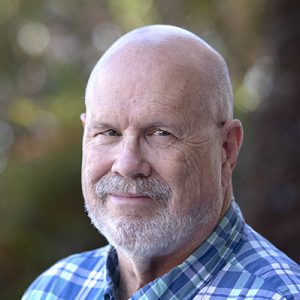Table Talk – Glimpses into the Conversations and Teachings of Jesus during the Last Supper
As our journey through the Last Supper’s rich tapestry of conversations and teachings unfolds, we find ourselves confronting one of the most human moments of the night: Peter’s denial and the profound lesson of forgiveness and restoration that follows.
It’s a moment that starkly contrasts the earlier teachings of service and love, highlighting the fragility of human resolve and the boundless capacity of divine grace. Jesus, knowing the depth of Peter’s impending betrayal, sets the stage not for condemnation but for an incredible demonstration of forgiveness and a call to return stronger.
6. Greatest, Betrayal, and Denial
Luke and John each share their own account of Peter and Jesus’ conversation. Let’s look at Luke’s account first:
“Simon, Simon, Satan has asked to sift each of you like wheat. But I have pleaded in prayer for you, Simon, that your faith should not fail. So when you have repented and turned to me again, strengthen your brothers.”
Peter said, “Lord, I am ready to go to prison with you, and even to die with you.”
But Jesus said, “Peter, let me tell you something. Before the rooster crows tomorrow morning, you will deny three times that you even know me” (Luke 22:31-34 NLT).
And now John’s account:
Simon Peter asked, “Lord, where are you going?”
And Jesus replied, “You can’t go with me now, but you will follow me later.” “But why can’t I come now, Lord?” he asked. “I’m ready to die for you.”
Jesus answered, “Die for me? I tell you the truth, Peter—before the rooster crows tomorrow morning, you will deny three times that you even know me” (John 13:36-38 NLT).
There were three disciples who could be called Christ’s inner circle: Peter, James, and John. They were there for the transfiguration, and they were the ones closest to Him while He agonized in the Garden. And when you read many of the confessions of Peter, you recognize him as a leader.
When Jesus came to the region of Caesarea Philippi, he asked his disciples, “Who do people say that the Son of Man is?”
“Well,” they replied, “some say John the Baptist, some say Elijah, and others say Jeremiah or one of the other prophets.”
Then he asked them, “But who do you say I am?”
Simon Peter answered, “You are the Messiah, the Son of the living God” (Matthew 16:13-16 NLT).
At this point many of his disciples turned away and deserted him. Then Jesus turned to the Twelve and asked, “Are you also going to leave?”
Simon Peter replied, “Lord, to whom would we go? You have the words that give eternal life. We believe, and we know you are the Holy One of God” (John 6:66-69 NLT).
When Peter stated, “You have the words of eternal life,” he was really saying the words of eternal life were only in the hands of Jesus. Such were his confessions. And I believe that not only did Peter perceive he would never betray the Christ, I’m sure the other disciples felt the same (although maybe they might have wished he didn’t speak quite so much).
There probably wasn’t a more tormenting time for Peter, when the rooster crowed, and the words of Christ were true. He had denied his Lord three times. And as dreadful as denying Christ was for him –and would be for us –there was forgiveness.
We glimpse this in the words of Christ as found in the Luke passage: So when you have repented and turned to me again, strengthen your brothers” (Luke 22:32 NLT).
Fast forward to a post-resurrection conversation at the beach by the Sea of Tiberias, after a fish breakfast.
When they had finished breakfast, Jesus said to Simon Peter, “Simon, son of John, do you love me more than these?”
He said to him, “Yes, Lord; you know that I love you.”
He said to him, “Feed my lambs.” He said to him a second time, “Simon, son of John, do you love me?”
He said to him, “Yes, Lord; you know that I love you.”
He said to him, “Tend my sheep.” He said to him the third time, “Simon, son of John, do you love me?”
Peter was grieved because he said to him the third time, “Do you love me?” and he said to him, “Lord, you know everything; you know that I love you.”
Jesus said to him, “Feed my sheep” (John 21:15-17 NLT).
I’ve often thought Peter was grieved because Christ asked Him three times, “Do you love me?” And it became a reminder of his three denials. But Chuck Swindoll once said it this way in a sermon I heard on his radio program:
Peter, do you super love me?
Lord, you know I like you a lot.
Peter, do you super love me?
Lord you know I like you a lot.
Peter, do you even like me a lot?
There are the two Greek verbs for love used here: agapao, used by Christ the first two times; and phileo used by Peter three times, and once by Christ –the third time. Christ was calling Peter to: Love one another. As I have loved you, so you must love one another. But Peter was unable to rise to that call. So when Christ came down to his level, that’s when the grief set in.
Still, following all three questions, Christ called him back to ministry. He had been forgiven.
We see in this lesson the heart-wrenching process of denial, the pain of realization, and the transformative power of Christ’s love that invites us to confession and restoration. Through Peter’s journey, we’re reminded of the importance of acknowledging our failings and the ever-present offer of redemption, illustrating that our relationship with God is defined not by our stumbles but by our willingness to rise, confess, and be renewed.
Is there something in your life that needs to be forgiven? You can be restored. Don’t forget the great words of the Apostle Paul in Romans 8:
For I am convinced that neither death, nor life, nor angels, nor principalities, nor things present, nor things to come, nor powers, nor height, nor depth, nor any other created thing, will be able to separate us from the love of God, which is in Christ Jesus our Lord (Romans 8:38-39 NASB).
One Thing: WILLINGLY CONFESS YOUR SINS (1 John 1:9)
Click here to go to the next lesson. The previous lesson is here.



